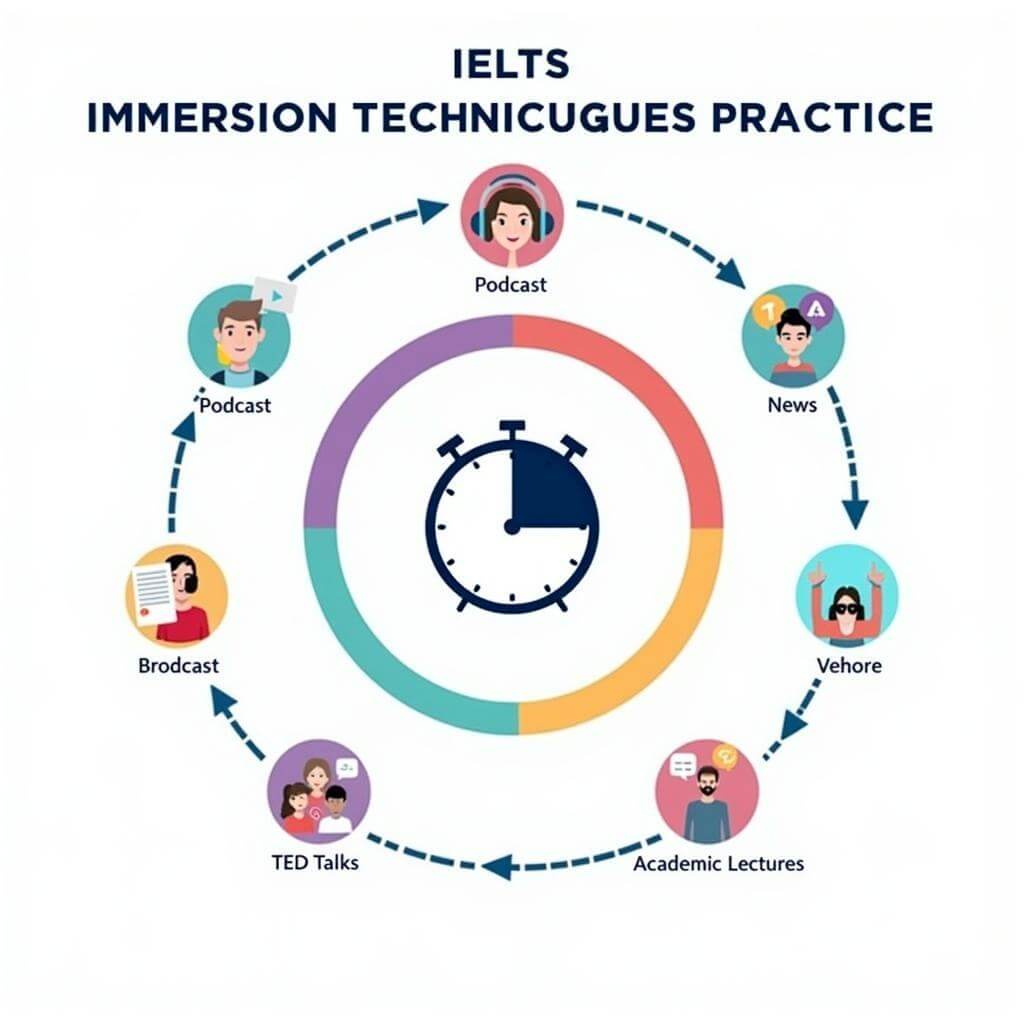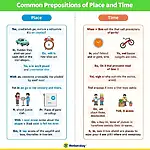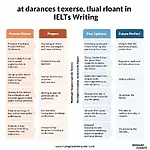The IELTS Listening test can be a daunting challenge, especially when faced with rapid-fire audio. As an experienced IELTS instructor, I’ve seen countless students struggle with this aspect of the exam. However, with the right strategies and consistent practice, you can significantly improve your performance. In this comprehensive guide, we’ll explore effective techniques for practicing with fast-paced audio, helping you boost your IELTS Listening score.
Understanding the Challenge of Fast-Paced Audio
Before diving into strategies, it’s crucial to understand why fast-paced audio poses such a challenge in the IELTS Listening test. The speed of speech in the recordings is designed to replicate real-life conversations and presentations, which can often be quick and unpredictable. This presents several difficulties:
- Limited processing time
- Increased likelihood of missing key information
- Higher stress levels during the test
To overcome these challenges, targeted practice is essential. Let’s explore some effective techniques to help you master fast-paced audio in IELTS Listening.
Developing Your Ear: Immersion Techniques
One of the most effective ways to improve your ability to handle fast-paced audio is through immersion. This involves exposing yourself to a wide variety of English-language content at natural speeds.
Daily Listening Routine
Establish a daily routine of listening to English-language content. This could include:
- News broadcasts
- Podcasts on various topics
- TED Talks
- Academic lectures
Aim for at least 30 minutes of focused listening each day. Over time, your ear will become more attuned to the natural rhythm and speed of English speech.
 IELTS Listening Immersion Techniques
IELTS Listening Immersion Techniques
Audiobook Training
Audiobooks can be an excellent resource for practicing with fast-paced audio. They offer extended periods of continuous speech, often at varying speeds.
“Audiobooks are a secret weapon for IELTS Listening success. They train your ear to follow complex narratives at natural speaking speeds,” says Dr. Emily Chen, IELTS examiner and language acquisition expert.
For more detailed strategies on how to prepare for IELTS listening with audio books, check out our comprehensive guide.
Focused Practice: Tackling Speed Head-On
While general immersion is valuable, targeted practice with fast-paced audio is crucial for IELTS success. Here are some specific exercises to incorporate into your study routine:
1. Speed Ramping
Start with audio at a comfortable speed and gradually increase the playback rate. Many podcast and video players allow you to adjust playback speed. Begin at 1x speed, then move to 1.25x, 1.5x, and even 2x as your skills improve.
2. Chunk Listening
Break down fast-paced audio into smaller, manageable chunks:
- Listen to a short segment (10-15 seconds) of fast audio
- Pause and try to summarize what you heard
- Replay the segment to check your understanding
- Move on to the next chunk
This technique helps you focus on processing information quickly without becoming overwhelmed.
3. Shadowing
Shadowing involves listening to audio and repeating what you hear in real-time. This exercise:
- Improves your ability to process fast speech
- Enhances your pronunciation and intonation
- Boosts your overall listening comprehension
Start with slower audio and gradually increase the speed as you become more comfortable.
Strategies for Handling Fast-Paced Dialogues
Fast-paced dialogues are particularly challenging in the IELTS Listening test. They often appear in Section 3, which simulates academic discussions. Here are some strategies to help you navigate these tricky conversations:
-
Identify speakers: Pay attention to the introduction of speakers and their distinct voices. This helps you follow the conversation flow.
-
Focus on keywords: In rapid exchanges, concentrate on catching key terms related to the questions.
-
Anticipate topics: Use the questions as a guide to predict the content of the dialogue. This mental preparation can help you catch important information more easily.
-
Practice turn-taking: In fast dialogues, speakers often interrupt or speak over each other. Train yourself to quickly shift attention between speakers.
For more in-depth techniques on handling fast-paced dialogue questions, refer to our specialized guide.
Dealing with Distractions and Interruptions
Fast-paced audio in IELTS often comes with additional challenges like background noise or interruptions. These elements are designed to mimic real-world listening conditions. Here’s how to prepare:
-
Practice with ambient noise: Listen to IELTS-style recordings with added background sounds (e.g., café noise, street sounds).
-
Develop selective hearing: Train yourself to focus on the main speaker despite distractions.
-
Improve concentration: Practice meditation or mindfulness to enhance your ability to stay focused during extended listening sessions.
-
Expect the unexpected: Familiarize yourself with sudden changes in topic or interruptions in the audio.
For a deeper dive into handling these challenges, check out our article on strategies for audio with interruptions.
 IELTS Listening Concentration Techniques
IELTS Listening Concentration Techniques
Advanced Techniques for Fast Audio Comprehension
As you become more comfortable with fast-paced audio, you can incorporate these advanced techniques to further enhance your listening skills:
Identifying Keywords in Rapid Speech
Developing the ability to quickly identify keywords in fast audio is crucial. This skill allows you to grasp the main ideas even if you miss some details. Practice by:
- Listening for stressed words in sentences
- Focusing on content words (nouns, verbs, adjectives) rather than function words
- Creating mental categories for common IELTS topics to help you anticipate keywords
For more tips on identifying keywords in fast audio, explore our detailed guide.
Recognizing Transition Signals
In fast-paced presentations or lectures, speakers often use transition words to signal shifts in topic or perspective. Being attuned to these signals can help you follow the structure of the audio more easily. Common transition phrases include:
- “On the other hand…”
- “In contrast…”
- “Furthermore…”
- “As a result…”
Practice listening for key transitions in audio to improve your ability to follow complex arguments and discussions.
Simulating Test Conditions
To truly prepare for the IELTS Listening test, it’s essential to practice under conditions that closely mimic the actual exam. Here’s how to set up effective simulation sessions:
-
Time yourself: Stick to the exact timing of the IELTS Listening test (about 30 minutes for the audio, plus 10 minutes for transferring answers).
-
Use official practice materials: IELTS provides official practice tests that accurately represent the exam’s difficulty and format.
-
Replicate test environment: Find a quiet space and use headphones to minimize distractions.
-
Practice answer sheet transfer: Get comfortable with quickly transferring your answers to the official answer sheet within the allotted time.
-
Limit replays: In the actual test, you’ll hear the audio only once. While practicing, try to limit yourself to a single play-through to build confidence and accuracy.
“Regular simulation practice is key to IELTS success. It builds stamina and reduces test-day anxiety,” advises Mark Thompson, lead IELTS instructor at Cambridge Preparation Academy.
Conclusion: Consistency is Key
Mastering fast-paced audio in IELTS Listening is a gradual process that requires consistent effort and targeted practice. By incorporating the strategies outlined in this guide—from immersion techniques to advanced comprehension skills—you can significantly improve your ability to handle rapid speech.
Remember, the goal is not just to understand fast English, but to do so accurately under test conditions. Regular practice with increasingly challenging material will help you build the skills and confidence needed to excel in the IELTS Listening test.
Stay motivated, track your progress, and don’t hesitate to seek guidance from experienced IELTS instructors. With dedication and the right approach to practicing with fast-paced audio, you’ll be well on your way to achieving your target IELTS score.
Frequently Asked Questions
How fast is the audio in the IELTS Listening test?
The IELTS Listening audio is designed to mimic natural speech rates, typically ranging from 150 to 170 words per minute. However, some sections may be faster, especially in academic discussions or quick conversations.
Can I control the audio speed during the actual IELTS test?
No, you cannot control the audio speed during the IELTS Listening test. The audio is played once at a set speed, which is why practicing with fast-paced material is crucial.
How many hours should I practice listening daily to improve my speed comprehension?
Aim for at least 30-60 minutes of focused listening practice daily. Consistency is more important than long, infrequent sessions.
Are there any specific accent types I should focus on for IELTS Listening?
IELTS Listening includes a variety of English accents, including British, American, Australian, and Canadian. It’s beneficial to practice with all these accent types to prepare comprehensively.
What should I do if I miss information in fast-paced sections?
If you miss information, stay calm and focus on the next question. Dwelling on missed answers can cause you to lose focus and miss subsequent questions.
How can I improve my note-taking skills for fast audio sections?
Develop a personal shorthand system, practice with sample tests, and focus on recording key information rather than trying to transcribe everything you hear.
Is it better to read the questions first or listen to the audio first in fast-paced sections?
It’s generally recommended to read the questions first. This allows you to predict the information you need to listen for, making it easier to catch key details in fast-paced audio.


